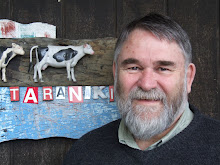This from the South African Sunday Times via Reuters.
Adults who learn new tricks such as juggling can improve the 'wiring' of their brains, say British scientists.
Research shows that newly trained jugglers had better connectivity in parts of the brain involved in movements needed to catch the balls - and the improvement lasted for weeks even after they stopped juggling. "We tend to think of the brain as being static, or even beginning to degenerate once we reach adulthood'" said Heidi Johansen-Berg of Oxford University's department of clinical neurology, whose study was published in the journal Nature Neuroscience.
"In fact we find the structure of the brain is ripe for change. We've shown that it is possible for the brain to condition its own wiring system to operate more efficiently."
White matter consists of bundles of long nerve fibres that conduct electrical signals between nerve cells, while grey matter consists of nerve cell bodies where the processing and computation in the brain is done.
Scientists have already show that grey matter function can improve by learning or experiencing new things, but improvements in white matter have not previously been shown.
The scientists took two groups of 24 adults none of whom who could juggle. One group has weekly juggling training sessions for six weeks and was asked to practise 30 minutes a day. The groups were scanned using special magnetic resonance imaging diffusion before and after the the 6 week period.
After the training there was great variation in skill levels, the researchers said. But all of the newly trained jugglers showed changes in white matter - suggesting that the benefit was down to time spent training and practising, rather than ability.
Subscribe to:
Post Comments (Atom)


Hi Wayne
ReplyDeleteI had forgotten you were away in South Africa. Sounds like you will bring a lot of good experiences home to share.Looking forward to catching up.
Ka kite ano
Bruce
PS I think I have joined your blog as a follower.